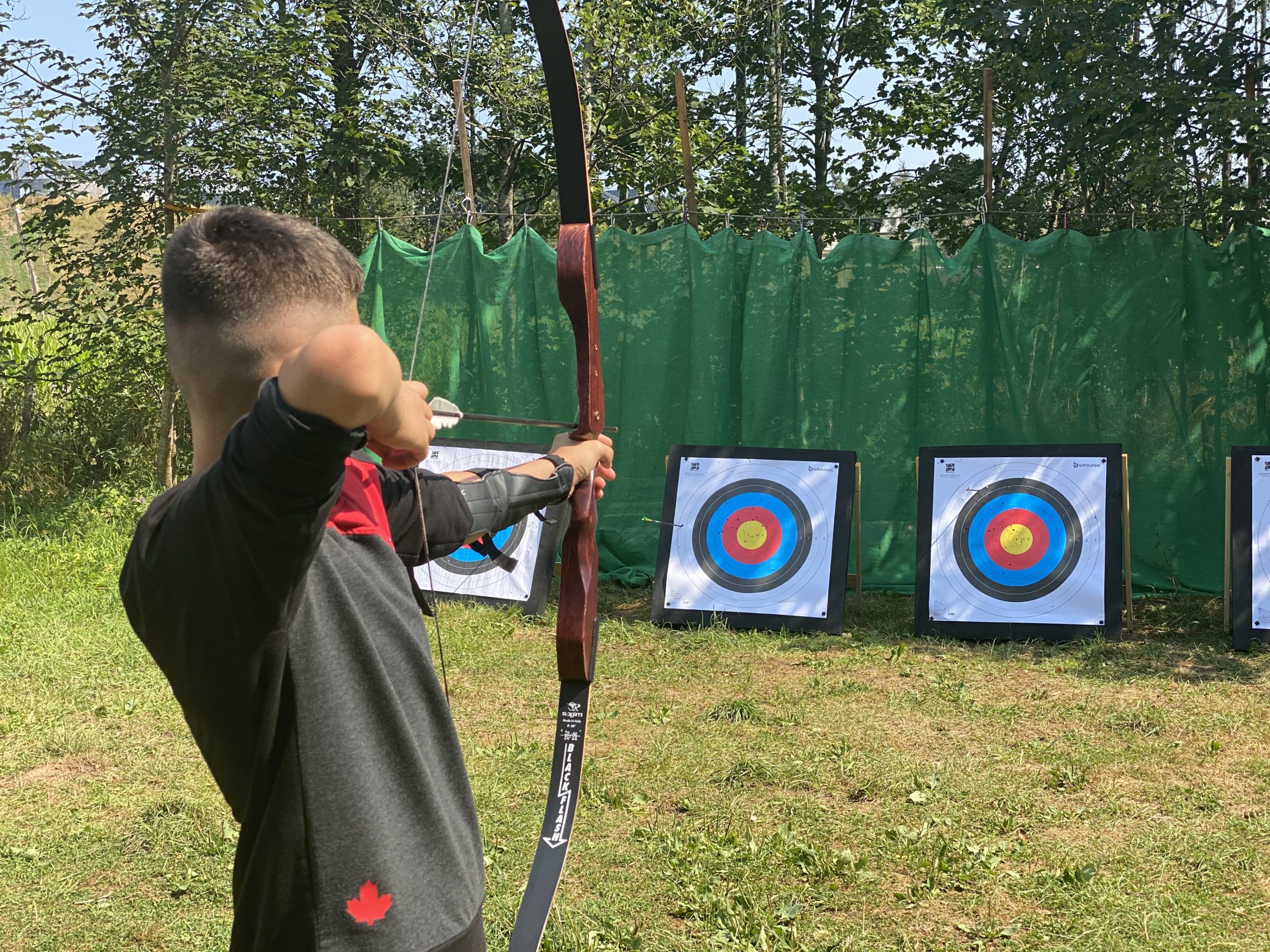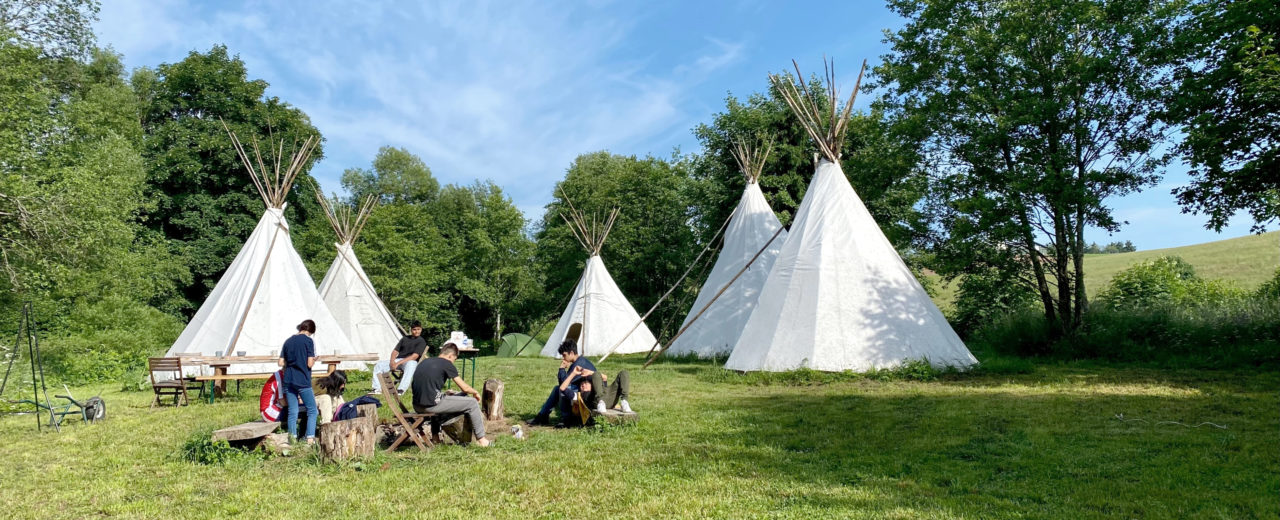 Escape the daily grind - off to an adventure
Escape the daily grind - off to an adventure
Empowering children living in poverty through nature holidays
"Holidays at last!" exclaims 11-year-old Toni when she comes home from school. This year Toni is especially happy because she is going away for the first time - to a tipi village in the Eifel. "What an adventure!", Toni's mother also thinks. She is a single parent and cannot afford a holiday or outings with the children on her small income. Toni, the eldest, is very much affected by her family's poverty. She feels responsible. At school, she stands out as a very quiet pupil who rarely laughs. She no longer invites friends home to play and is ashamed of the sparsely furnished flat that she lives in. In the upcoming supervised holiday trip, children like Toni will experience a great holiday with their peers, gain self-confidence and enjoy taking time out from their everyday lives, which are burdened with worries. Toni will also come back stronger and will have a lot to talk about at school.
Necessity
Providing children and young people growing up in poverty with support and some time off
Activity
With educational holiday trips in nature, the NGO enables children and young people to take time off from their stressful everyday lives
Countable effort
5-day holiday camps in the Tipi Village for 6 lots of 12 disadvantaged children from Cologne
Result
Children can use their summer holidays for regeneration and come back to school refreshed and performing better, they have gained in self-confidence
Systemic effect
The children and young people can learn everyday skills for school and family from their experience, can make decisions more confidently and handle group situations better
Background
Enough with the daily grind – have an adventure. For many adults, thier holidays are among the best and pleasurable childhood memories. Children who are living on the breadline with their families rarely have such childhood memories. But it is precisely for them that these experiences would be so important.
2.8 million children under the age of 18 live in poverty in Germany (Bertelsmann Foundation, 2020). This often means they have too small a flat, few opportunities to play, no quiet place to study and do homework. During the holidays, these children usually have very little new stimulation and experiences. This is often accompanied by feelings of powerlessness, negative self-image and experiences of exclusion. All this makes it difficult for them to overcome poverty for the rest of their lives.
This is where Fair.Stärken comes in: The holiday trips have a lasting effect on the children. They gain strength and self-confidence. They discover their strengths and broaden their perspectives. Archery, swimming in a stream, campfires, hikes, experience-based group games, cooking together and relaxing become lasting positive experiences and unforgettable memories. This gives them a chance to grow up healthy and happy. The good deed is part of the project “Starke Kinder Köln” (“Strong Children Cologne”), which accompanies disadvantaged children over a period of 2-3 years. The project offers social training, holiday trips and workshops for parents. The aim is to strengthen the children in their personal abilities and thus promote participation and equal opportunities.
The good deed
With your donation, we can offer children and young people an educationally supervised holiday trip in nature. Our tepee village is surrounded by meadows, forests and streams. With a group size of up to 12 children and young people and 3 trained educational staff, the programme includes games, fun and excitement. Here, they play experiential educational games in the forest, which strengthen the children's trust in other people, they organise excursions and go on night hikes. Many of the children see a real frog for the first time in their lives or make their first attempts at swimming in the nearby stream. The camp offers the children a sense of achievement that strengthens their self-confidence. In the group, the children realise: I am not alone and others feel the same as I do. They quickly recognise people they can trust, who support them and in whom they can confide their worries.

About Germany
Berlin
Capital
83,129,285
Number of inhabitants
50,801.8
Gross domestic product per capita per year
Rang 9 von 191
Human Development Index
Germany is one of the richest countries in the world, and yet every fifth child here lives in relative poverty. This amounts to almost 3 million children under the age of 18 (Bertelsmann Stiftung, 2020).
About the organization and further information
Association
FAIR.STÄRKEN e.V.
Website

Further information and source
- Schütte, J. 2013. Armut wird "sozial vererbt". Status Quo und Reformbedarf der Inklusionsförderung in der Bundesrepublik Deutschland, Wiesbaden.
- Bertelsmann Stiftung 2020. Factsheet Kinderarmut in Deutschland.
- Schmitt, J. 2014. Habitus-Struktur-Reflexivität – Anforderungen an helfende Professionen im Spiegel sozialer Ungleichheitsbeschreibungen, in: Sander, Tobias (Hrsg.): Habitussensibilität. Eine neue Anforderung an professionelles Handeln, Wiesbaden: Springer-VS, 67 - 86.




